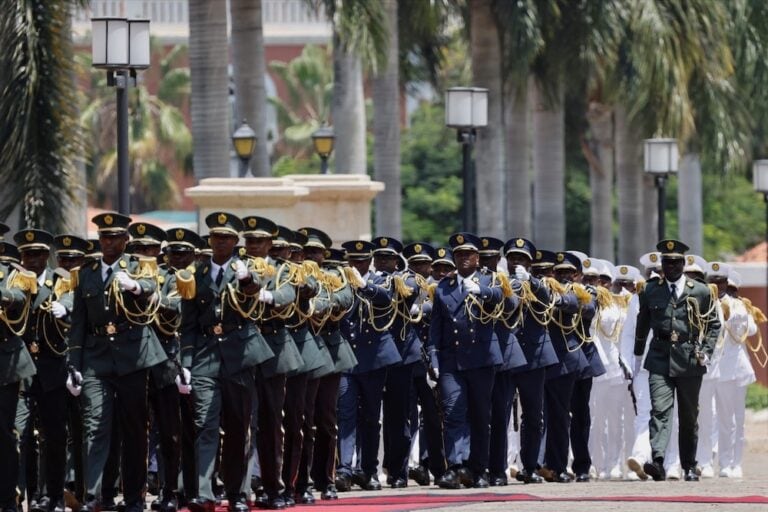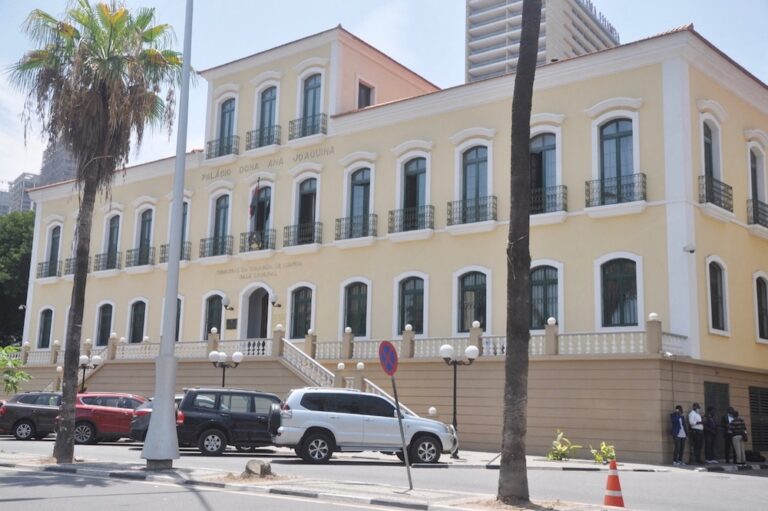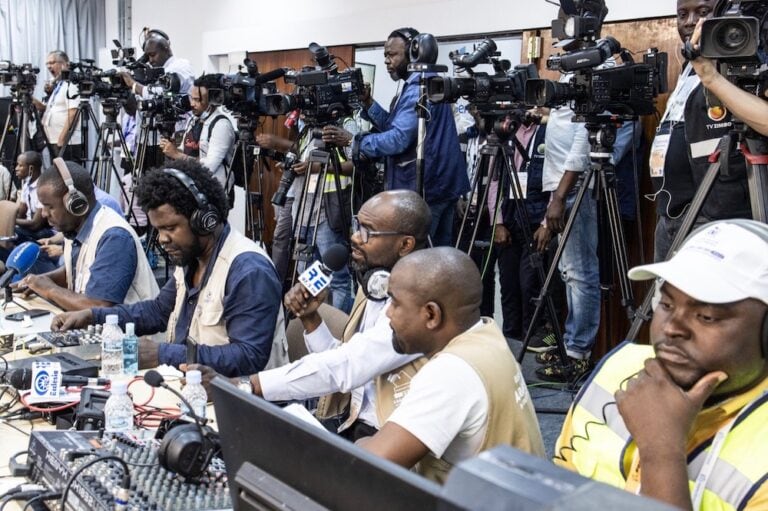(MISA/IFEX) – Journalist Rafael Marques, who was arrested by police in Luanda on 16 October 1999, remains in detention despite the expiry of the fifteen-day period during which the state can legally detain him without bringing him to trial. **Updates IFEX alerts on the Marques case of 28 October, 22 October, 20 October, 19 October, […]
(MISA/IFEX) – Journalist Rafael Marques, who was arrested by police in
Luanda on 16 October 1999, remains in detention despite the expiry of the
fifteen-day period during which the state can legally detain him without
bringing him to trial.
**Updates IFEX alerts on the Marques case of 28 October, 22 October, 20
October, 19 October, and 18 October 1999; and IFEX alerts on the Neto case
of 29 September, 14 September and 7 September 1999**
MISA has also confirmed that on 26 October, Marques was granted access to
his lawyer for the first time, some ten days after his arrest.
Meanwhile, reports received from Luanda say that a group of “concerned
citizens” had planned a protest march in the city for 2 November to protest
the detention of Marques, but the march was not allowed.
In another development, journalist Gilberto Neto, who works for the
independent bi-weekly “Folha 8”, was prevented from leaving the country on
Sunday 31 October. Neto was on his way to South Africa, when he was stopped
by customs officials at the airport. They informed him that he could not
leave the country as there was a judicial proceeding pending against him.
Neto had not been previously informed that he could not leave the country.
Background Information
Journalist Rafael Marques was arrested at his home on 16 October. Two days
earlier, on 14 October, he was charged with defaming President dos Santos,
for having referred to him as a dictator in a 3 July article published in
the “Agora” newspaper. The article entitled, “The Big Stick of
Dictatorship”, said that dos Santos was “responsible for the destruction of
the country and the promotion of corruption.”
For the first ten days of his detention, Marques was held incommunicado, and
neither his lawyer nor his relatives were allowed access to him.
Marques’ lawyer, Luis Nascimento, earlier pointed out at least two
procedural irregularities in the continued detention of Marques. The first
was that no-one was being allowed access to him, and the second was that the
attorney general (A.G.) had refused to attend to an application for bail,
several days after it had been prepared, apparently because the A. G. was
“attending a conference.” On 26 October, the A. G. officially refused a bail
application by Marques.
Marques has apparently been charged under Angola’s notorious Law 7/78, also
known as the Law on Crimes Against State Security. Law 7/78 violates Article
35 of the 1992 Angolan Constitution, which guarantees the right to freedom
of expression. However, the absence of a functioning Constitutional Court in
Angola means that Law 7/78 cannot be challenged at this time. The charge
against Marques carries a two to eight year prison sentence.
In an address by Angolan lawyer, Maria Pereira, to a Media Lawyers
Conference in Windhoek in August this year, Pereira pointed out that in
terms of the Press Law, defamation of the president was a criminal offence.
The law further gave no, or very weak, options for defence of a journalist
accused of defaming the president. According to Pereira, “Once the president
claims defamation, it is accepted that the facts have been proven.” As a
result, the only type of defence a journalist can put forward when faced
with this charge, is to prove that s/he was not the author of the article.
This situation exists only in the case of a claim of defamation against the
president of the republic, a foreign head of state or a representative of a
foreign head of state.
Recommended Action
Send appeals to the president:
demanding his immediate release either unconditionally, or on bail
it is past the fifteen-day deadline for the state to legally detain someone
without bringing them to trial
complied with, and that the rights of the detainee are upheld
that an integral part of democracy is that those who hold office in
government and who are responsible for public administration must always be
open to criticism
available
to counter alleged defamation such as media retraction, media statements,
and other options involving the right of reply
amounts to political censorship in that it seeks to punish him for
expressing his views about the government, in general, and the president in
particular
international treaties and obligations which guarantee the right to freedom
of expression, including the International Covenant on Civil and Political
Rights, of which Angola is a signatory
immediately withdraw the charges against Marques
Appeals To
Hon Jose Eduardo dos Santos
President of the People’s Republic of Angola
Fax: +244 2 392 733/ 391 476/ 331 898
Please copy appeals to the source if possible.


